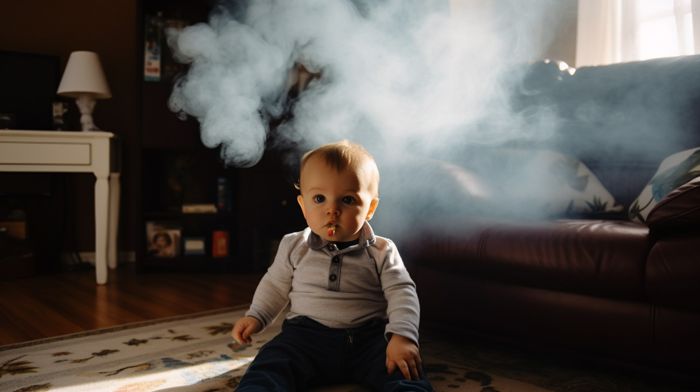The Intersection of Secondhand Smoke and Medical Cannabis: A Complex Connection
Secondhand smoke, a byproduct of combusted tobacco, has long been recognized as a public health concern due to its association with a myriad of adverse health effects. In recent years, the landscape has evolved with the growing acceptance and legalization of medical cannabis. This shift prompts an exploration into the potential implications of secondhand cannabis smoke on health, drawing parallels with the established body of knowledge on secondhand tobacco smoke. As the discourse surrounding medical cannabis gains momentum, it becomes imperative to dissect the intricate relationship between secondhand smoke and medical cannabis use.
Secondhand Smoke: A Historical Perspective:
The dangers of smoke exposure have been extensively studied and are well-documented. The harmful effects of exposure to smoke from tobacco include respiratory issues, cardiovascular diseases, and an increased risk of cancer. Regulatory measures, such as smoking bans in public places, have been implemented globally to mitigate these risks. However, as the landscape of smoking substances shifts, new considerations arise with the emergence of medical cannabis as a therapeutic option.
Medical Cannabis: A Shifting Paradigm:
Medical cannabis, derived from the Cannabis sativa plant, has gained traction as a potential treatment for various medical conditions. Its active compounds, cannabinoids like THC and CBD, interact with the endocannabinoid system in the human body, offering relief from symptoms such as chronic pain, nausea, and muscle spasms. Despite its therapeutic potential, the act of smoking cannabis raises concerns similar to those associated with tobacco use.
Secondhand Cannabis Smoke: What We Know:
Studies exploring the impact of exposure to cannabis smoke on health are limited but emerging. Similar to tobacco smoke, cannabis smoke contains harmful chemicals, including carcinogens and toxic compounds. When cannabis is smoked, combustion produces a complex mixture of substances that those in proximity to the smoker can inhale. This raises questions about the potential health risks for non-smokers exposed.
Respiratory Effects:
Inhalation of secondhand smoke, whether from tobacco or cannabis, poses respiratory risks. Studies suggest that exposure may lead to irritation of the respiratory tract and exacerbation of pre-existing respiratory conditions. While the long-term effects are still under investigation, parallels can be drawn with the well-established risks associated with secondhand tobacco smoke.
Cardiovascular Concerns:
Cardiovascular health is another dimension that warrants attention in the context of secondhand cannabis smoke. Research on the cardiovascular effects of secondhand cannabis smoke is limited, but the vasoactive properties of cannabinoids raise the possibility of cardiovascular implications for non-smokers exposed to the smoke.
Cannabinoids and Therapeutic Potential:
It is crucial to note that not all forms of medical cannabis involve smoking. Alternative methods, such as vaporization, edibles, or tinctures, provide therapeutic benefits without inhaling smoke. These methods mitigate the risks associated with secondhand smoke exposure and offer a more controlled and targeted approach to cannabis administration. We’ll talk more about strategies to mitigate smoke exposure in an upcoming article.
Public Health Policy and Regulation:
As the landscape of medical cannabis evolves, public health policies and regulations must adapt to address the potential risks associated with secondhand cannabis smoke. Lessons learned from tobacco control can inform the development of policies aimed at protecting non-smokers from involuntary exposure to cannabis smoke. Establishing guidelines for consumption in public spaces and encouraging alternative administration methods are steps that policymakers can take to mitigate potential health risks.
Conclusion:
The intersection of secondhand smoke and medical cannabis presents a complex and evolving landscape. While medical cannabis offers therapeutic potential for various medical conditions, the act of smoking raises concerns reminiscent of those associated with tobacco use. As research on the health effects of secondhand cannabis smoke continues to unfold, it is important to strike a balance between promoting access to medical cannabis and safeguarding public health. Policymakers, healthcare professionals, and the patients must collaborate to develop informed guidelines and practices that address the unique challenges posed by the intersection of secondhand smoke and medical cannabis.

Dr. Nicholas Marsh has been a respected board-certified anesthesiologist in Northern Virginia for over 35 years. Recognized as a top doctor by FindaTopDoc.com, his vision for providing top-quality medical services is driven by his passion for patient comfort and dignity.

